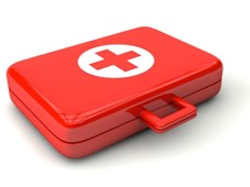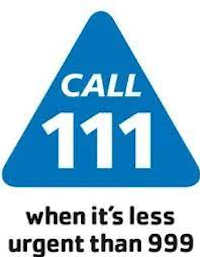Self-care
Self-care is about understanding how you can look after yourself at home, when to contact a pharmacist to help and when to contact your GP. If you have a long term condition, self-care is about understanding that condition and how to live a health life with it.
Self-care often involves taking remedies, medication or simply staying at home and resting until your illness passes. For advice on what medications to buy, visit your local pharmacy.
Common medications to keep at home
Be prepared for common illness and injury at home by staying prepared. Below are some handy things to keep around the house.
Pain relief
Painkillers like Aspirin, Paracetamol and Iburofen are highly effective at relieving most minor aches and pains.
Please be aware that:
- Aspirin mustn’t be given to children under 16.
- Ibuprofen must be taken with caution if you have certain conditions, such as asthma- Check with your pharmacist if in doubt.
- Pregnant people shouldn’t take ibuprofen- Visit the bumps website to find out more about medications and pregnancy.
Antihistamines
Antihistamines can come in cream and tablet form. They are useful if you are dealing with allergies and inset bites. They are also good for hayfever.
Some antihistamines may cause drowsiness. Ask your pharmacist for more information.
Oral rehydration salts
Fevers, vomiting and diarrhoea make us loose water and essential minerals which can lead to dehydration. Oral rehydration salts are an easy way to restore the loss and help you recover. The most common oral rehydration salt is called Dioralyte. You may have heard of it before.
Please note these DO NOT fight the cause of your illness.
First aid kit

A well-prepared first aid kit can help treat minor cuts, sprains and bruises. You can buy a first aid kit or you can make your own.
If you want to make your own, here are some handy tips on what to include:
- Bandages
- Plasters
- Thermometer
- Antiseptic wipes / spray
- Sterile dressings (helps prevent infection while seeking medical help)
- Medical tape (helps to keep wound dressings in place)
- Tweezers (to help remove splinters)
Medication safety
When taking and storing medications at home always remember;
- Follow the directions on the medication packet and information leaflets.
- Always keep medication out of the reach and site of children.
- Regularly check the expiry date on the medication. If the medication is past its use-by date, take it to your local pharmacy so they can dispose of it safely.
NHS Symptom Checker

If you’re not sure what condition you have, or how severe it is, you can use the NHS 111 symptom checker. The checker will:
- Answer questions about your main symptom.
- Help you find out when and where to get help.
- Arrange for you to be contacted by a nurse, if needed.
- To use the checker, click here: https://111.nhs.uk/
Last updated07 Jun 2024

